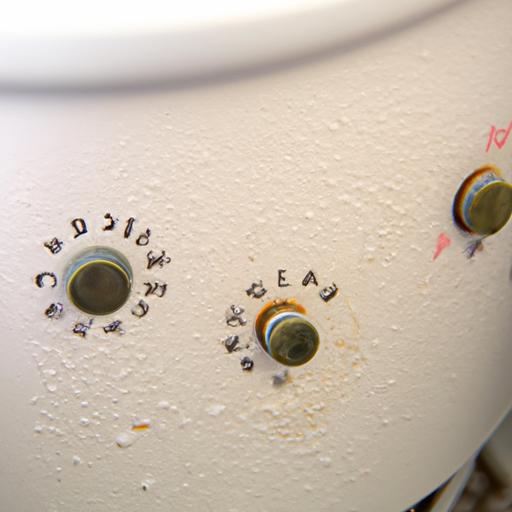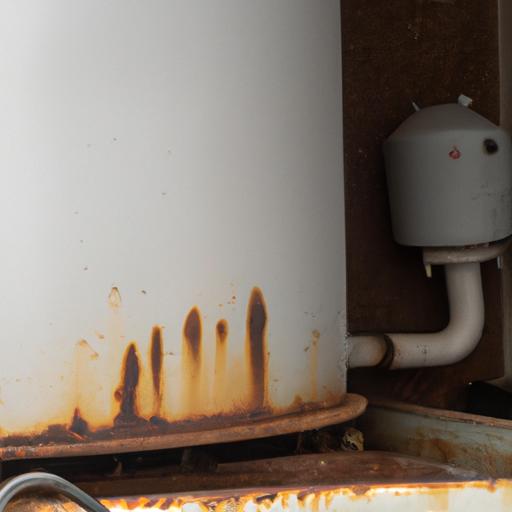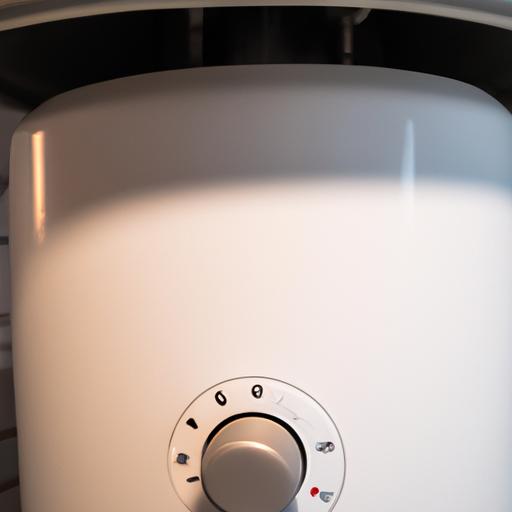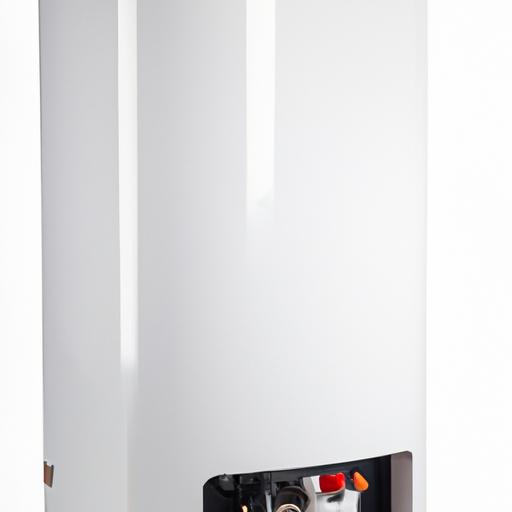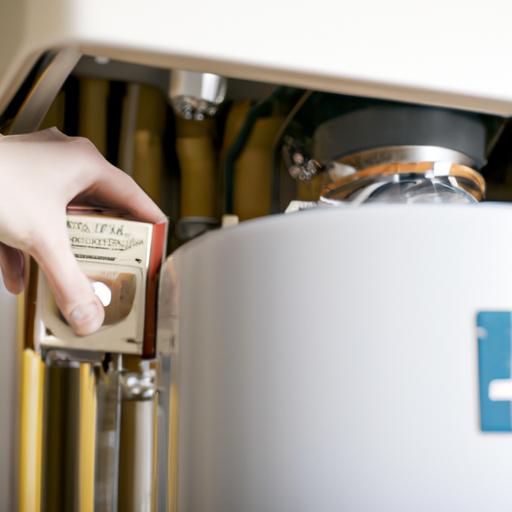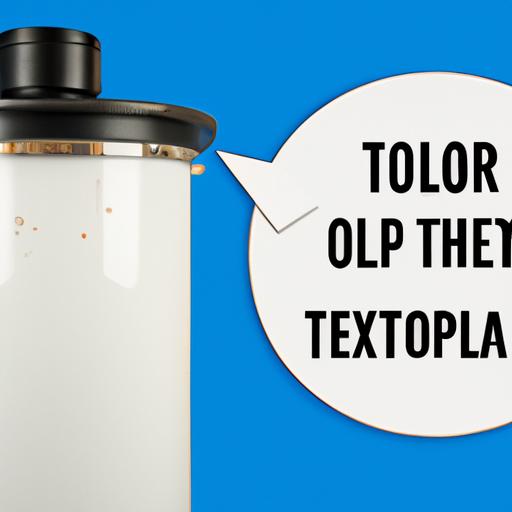Introduction
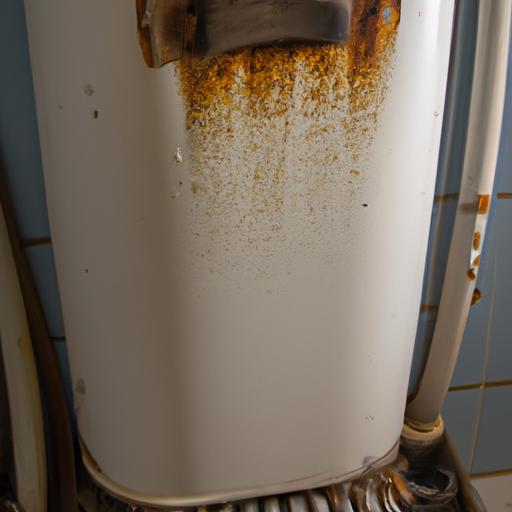
When was the last time you experienced the unpleasant surprise of rusty hot water flowing from your faucet? It’s not only unappealing but also a sign of potential problems within your plumbing system. In this comprehensive guide, plumbingrepairtips.com will delve into the world of rusty hot water, exploring its definition, common causes, and the crucial importance of addressing this issue promptly.
A. Definition of Rusty Hot Water
Rusty hot water refers to the discoloration and presence of rust particles in your hot water supply. Instead of the clear, clean water you expect, you may notice a reddish-brown tint and even observe sediment settling at the bottom of your glass. This unsettling occurrence often raises concerns about the quality and safety of your water.
B. Common Causes of Rusty Hot Water
To understand how to combat this issue, we must first uncover its root causes. Some of the usual suspects include aging or corroded water heaters, sediment buildup within the tank, galvanized pipes or plumbing systems, and high iron content in the water supply. Each of these factors can contribute to the disheartening sight of rusty water flowing from your taps.
C. Importance of Addressing Rusty Hot Water Issues
Now, you might be wondering, “Why should I be concerned about rusty hot water?” Well, apart from the obvious aesthetic displeasure, rusty water can stain your laundry, leave unsightly marks on fixtures, and even affect the taste and odor of your drinking water. Moreover, ignoring these issues can lead to more significant problems within your plumbing system, potentially requiring costly repairs or replacements.
So, join me as we journey through the depths of rusty hot water, equipping ourselves with the knowledge and solutions necessary to combat this nuisance. Together, we will uncover the secrets to maintaining a clean and rust-free hot water supply.
Stay tuned for the following sections where we’ll discuss the signs and symptoms of rusty hot water, understand its causes, explore preventive measures, DIY solutions, and know when it’s time to seek professional help.
Remember, the key to conquering rusty hot water is knowledge, action, and timely intervention. Let’s get started on this transformative journey, ensuring that your hot water flows crystal clear, just like it should.
Stay tuned for Section II where we’ll explore the signs and symptoms of rusty hot water and how to detect them effortlessly.
Signs and Symptoms of Rusty Hot Water
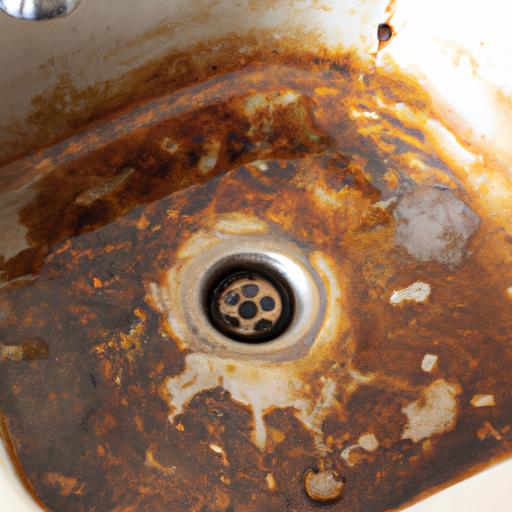
Is your hot water not living up to its clear and refreshing reputation? It’s crucial to be able to recognize the signs and symptoms of rusty hot water. By doing so, you can promptly address the issue and ensure the quality of your water remains uncompromised. Let’s dive into the common indicators you should be vigilant about.
A. Discolored Water
The most apparent sign of rusty hot water is a noticeable change in color. Instead of the usual transparent hue, you may observe a reddish-brown tint in your hot water supply. This discoloration is caused by the presence of rust particles, which can be unsettling and raise concerns about the overall water quality.
B. Metallic Taste or Odor
Have you ever taken a sip of water only to be greeted by an unpleasant metallic taste or odor? Rusty hot water can leave behind these undesirable characteristics, making it unpalatable and off-putting. If your water suddenly exhibits a metallic tang or emits an unusual smell, it’s a telltale sign that rust is infiltrating your hot water supply.
C. Stained Laundry or Fixtures
Another consequence of rusty hot water is the potential for stained laundry and fixtures. When washing clothes or using hot water for cleaning purposes, rusty water can leave unsightly stains on your fabrics and fixtures. These stains can be challenging to remove, diminishing the aesthetic appeal of your belongings.
D. Reduced Water Pressure
If you’ve noticed a significant drop in water pressure when using hot water, rusty pipes or a corroded water heater might be to blame. The accumulation of rust and sediment can clog pipes and restrict the flow of water, resulting in reduced water pressure. This decrease in pressure can affect your daily activities, such as showering or washing dishes, making it crucial to address the issue promptly.
By being aware of these signs and symptoms, you can quickly identify rusty hot water concerns and take appropriate action. In the following sections, we will explore the causes behind this problem and delve into effective solutions to ensure that clean and clear hot water flows effortlessly throughout your home.
Stay tuned for Section III where we’ll uncover the underlying causes of rusty hot water and how they impact your water supply.
Understanding the Causes of Rusty Hot Water
As we dive deeper into the murky waters of rusty hot water, it becomes imperative to understand the underlying causes behind this vexing issue. By identifying the root causes, we can effectively address the problem and restore the purity of our hot water supply.
A. Aging or Corroded Water Heater
One of the primary culprits behind rusty hot water is an aging or corroded water heater. Over time, the inner lining of the tank can deteriorate, leading to rust particles mixing with the hot water. Additionally, the sacrificial anode rod, responsible for preventing corrosion, may wear out, leaving the water heater vulnerable to rust formation.
B. Sediment Build-up in the Water Heater
Another common cause of rusty hot water is sediment build-up within the water heater. Sediment, such as sand, minerals, and debris, can accumulate at the bottom of the tank over time. As the water heats up, this sediment can corrode, leading to rusty water flowing through your pipes.
C. Galvanized Pipes or Plumbing System
If your home has an older plumbing system, chances are it utilizes galvanized pipes. While durable, these pipes are prone to corrosion. Over time, the protective zinc coating can wear off, allowing rust to develop on the inner walls. As hot water passes through these corroded pipes, it can pick up rust particles, resulting in rusty hot water.
D. High Iron Content in Water Supply
Lastly, the iron content in your water supply can be a contributing factor to rusty hot water. Well water, in particular, often contains higher levels of iron, which can oxidize and create rust. This is especially true if the water is exposed to oxygen or excessive air pressure.
By understanding these causes, you are better equipped to take the necessary steps to address rusty hot water issues. In the upcoming sections, we will explore preventive measures you can implement, as well as DIY solutions to combat this troublesome phenomenon.
Next, in Section IV, we will discuss effective steps to prevent rusty hot water and maintain a clean, reliable hot water supply.
Steps to Prevent Rusty Hot Water
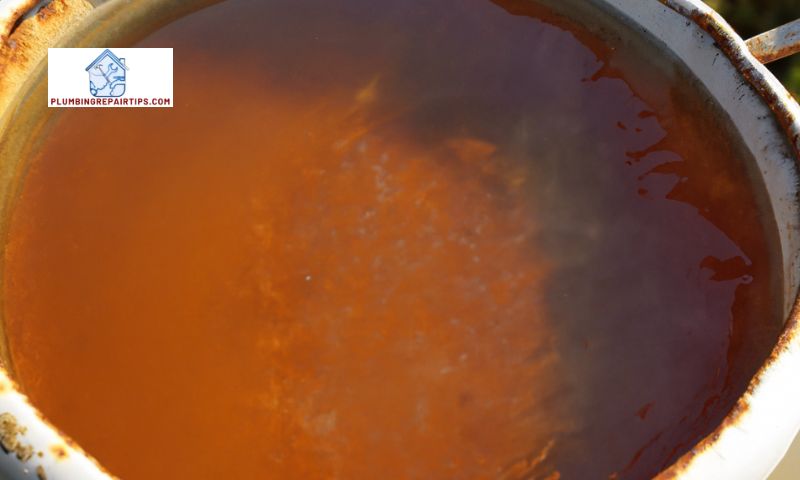
When it comes to ensuring a constant supply of clean and rust-free hot water, proactive measures play a vital role. By implementing the following preventive steps, you can minimize the chances of encountering rusty hot water in your home.
A. Regular Maintenance of Water Heater
Regular maintenance of your water heater is crucial in preventing the accumulation of sediment and rust that can contaminate your hot water supply. Schedule annual inspections from a professional plumber who can assess the condition of your water heater, perform necessary cleanings, and identify any potential issues before they escalate.
B. Flushing the Water Heater Tank
Flushing your water heater tank at least once a year is an effective method to remove built-up sediments and rust particles. This simple DIY task involves draining the tank completely, clearing out any debris that may have settled at the bottom. By performing this routine maintenance, you can extend the lifespan of your water heater and maintain clean hot water flow.
C. Installing a Water Softener or Filtration System
If your area has hard water or high iron content, installing a water softener or filtration system can work wonders in preventing rusty hot water. These systems remove minerals, impurities, and excess iron from your water supply, ensuring that your hot water remains free from discoloration and sediment.
D. Upgrading Plumbing System
Outdated or galvanized plumbing systems can contribute to rusty hot water issues. Consider upgrading to modern materials like copper or PEX pipes, which are less prone to corrosion. By investing in a more durable plumbing system, you can significantly reduce the likelihood of rust contamination in your hot water supply.
By following these preventive measures, you take proactive steps to safeguard your hot water supply from rust and ensure a consistent flow of clean water throughout your home. Remember, prevention is the key to maintaining a reliable and rust-free hot water system.
Stay tuned for Section V where we’ll explore DIY solutions to fix rusty hot water, empowering you to take matters into your own hands and restore the purity of your hot water.
Conclusion
In conclusion, addressing rusty hot water issues is vital for ensuring a clean and reliable hot water supply in your home. By understanding the causes and taking proactive measures, you can prevent the frustration and potential damage caused by rusty water.
Throughout this guide, we have explored the definition of rusty hot water, the common causes behind it, and the importance of taking action. We have also discussed the signs and symptoms to watch out for, preventive steps you can take, and DIY solutions to fix the issue.
Remember, regular maintenance of your water heater, such as flushing the tank and replacing anode rods, can go a long way in preventing rust buildup. Cleaning faucet aerators and showerheads can also help remove any accumulated sediment. If you have galvanized pipes causing the problem, consider repairing or replacing them to ensure a rust-free water supply.
While DIY solutions can be effective for many cases, there are situations where seeking professional help is necessary. If you experience persistent rusty water, have a complex plumbing system, lack DIY experience, or encounter safety concerns, it’s best to consult a professional plumber. They have the expertise and tools to diagnose and resolve more challenging issues.
At plumbingrepairtips.com, we are committed to providing you with valuable information and solutions to maintain a healthy plumbing system. Remember, a clean and rust-free hot water supply is not only visually appealing but also crucial for your overall well-being.
So, take control of your water quality today and bid farewell to rusty hot water forever. Implement the preventive measures and DIY solutions discussed in this guide, and if needed, don’t hesitate to reach out to a trusted professional.
Thank you for joining us on this journey to tackle rusty hot water. Together, we can ensure a refreshing and pristine hot water experience in your home.
Stay tuned for more informative articles and tips on plumbing repair and maintenance at plumbingrepairtips.com.
